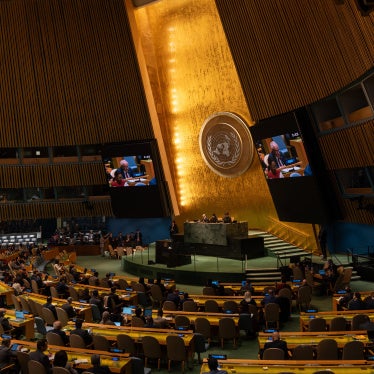Human Rights Watch shares concern with the Independent Expert’s finding that the use of antipsychotic drugs to control behavior without a therapeutic purpose, also known as “chemical restraint,” is “widespread and abusive” in care facilities.
The use of antipsychotic drugs in older people with dementia nearly doubles the risk of death. Despite this, in the United States, during an average week in 2018, more than 179,000 people in nursing homes were given antipsychotic drugs without an appropriate diagnosis.
In 2019, staff in aged care facilities in Australia did not obtain informed consent from older people or their family members to use antipsychotic drugs. Despite regulations introduced that year to minimize their use, chemical restraints were used in more than 150 aged care facilities between July 2020 to July 2021.
During the Covid-19 pandemic, increases in psychotropic drug prescriptions for older people in nursing homes in the United Kingdom and Canada may have added risks to those already among the most threatened by the coronavirus.
No one should be deprived of their liberty because of their support needs. Governments should prohibit the use of chemical restraints to control the behavior of older people and instead ensure their rights are protected.
The Human Rights Council should take concrete steps to address the protection gaps in the current international legal framework.








